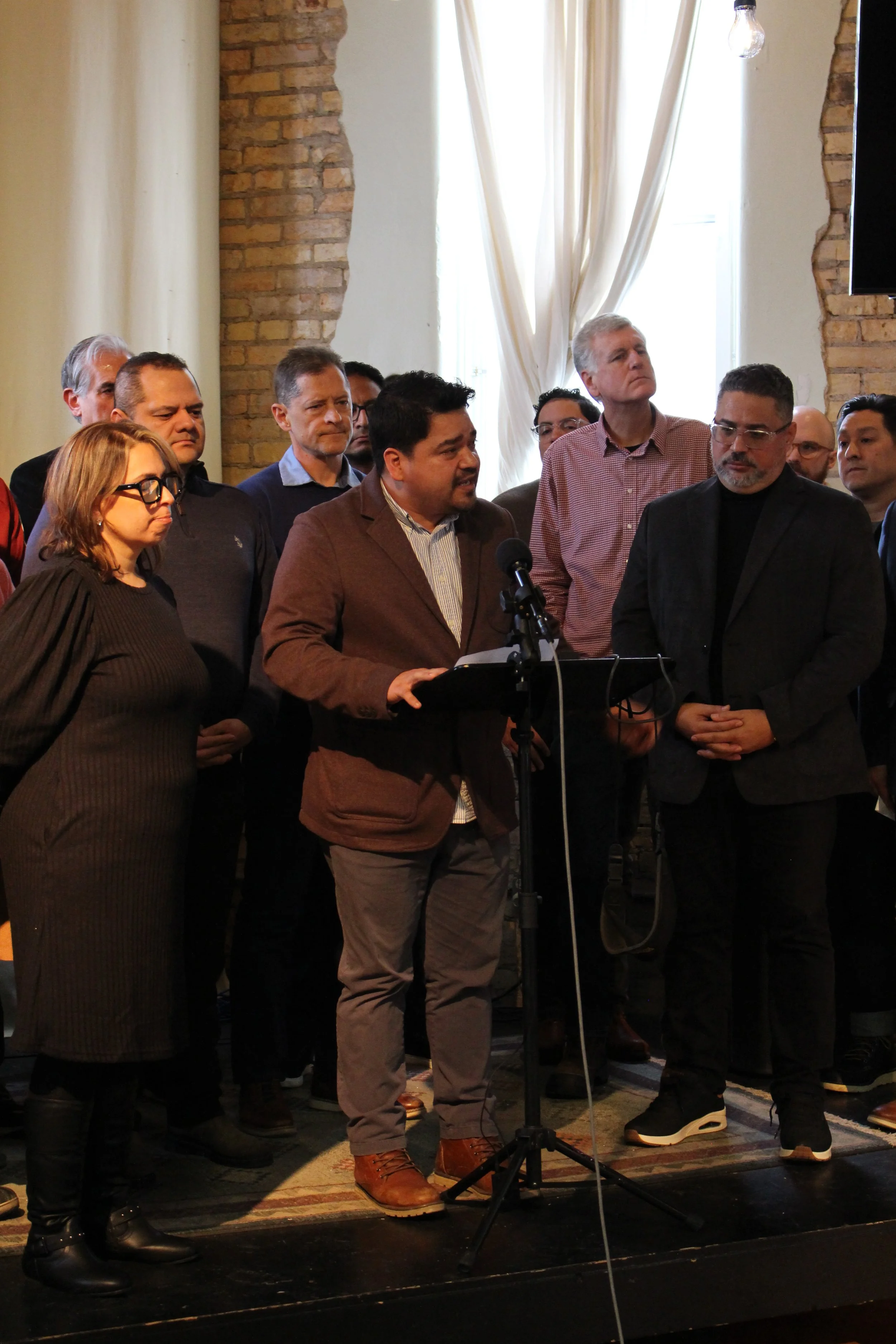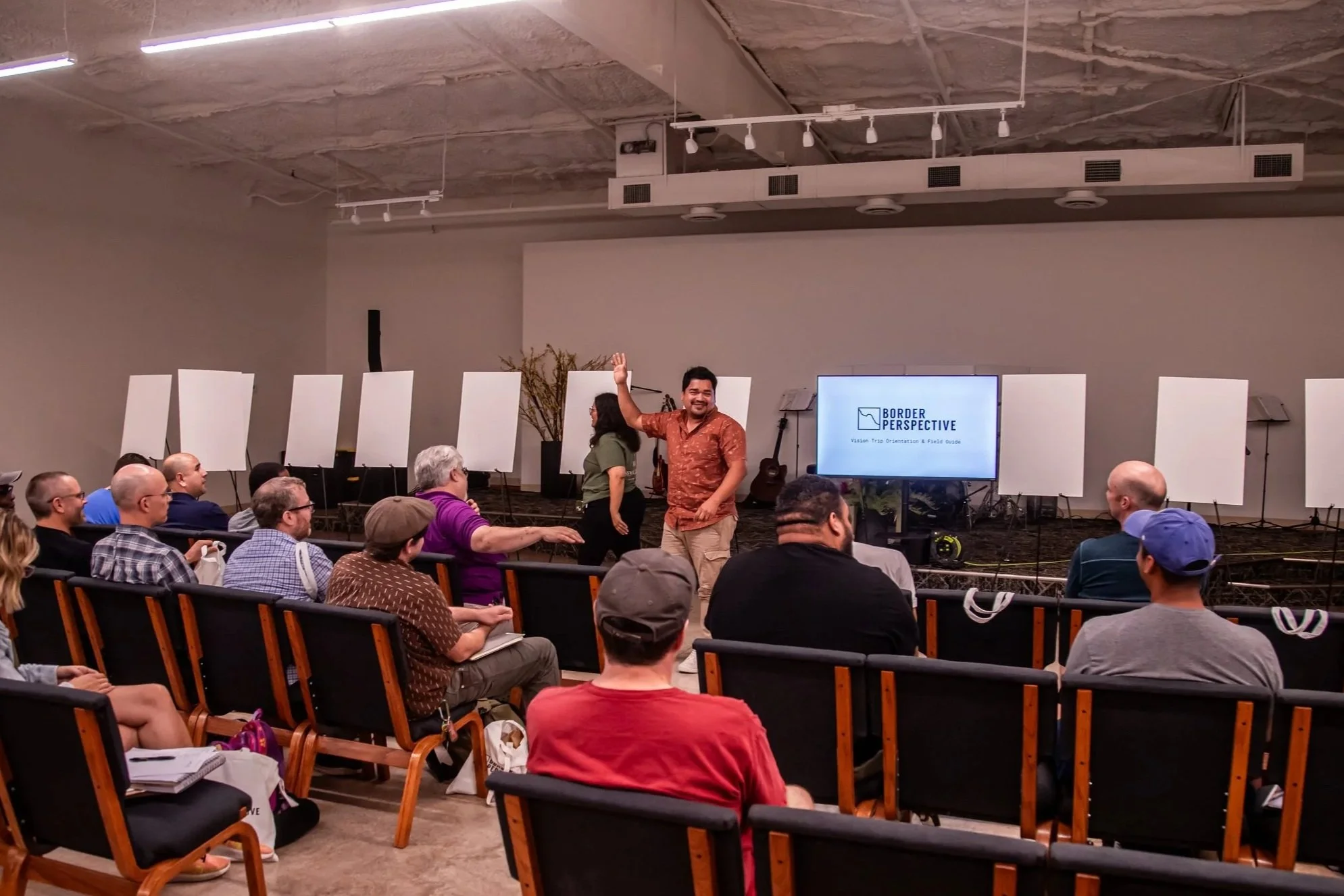The God Who Sees
I knew I held a special book in my hands when I read in the first pages of The God Who Sees: “In a way, I felt that God had been preparing me to tell this story for my whole life.”
Reading these words made me feel that I had been given a personal gift: the gift of the author’s experience in the world.
Karen Gonzalez is a compelling narrator. She is a member of what is sometimes called “the 1.5 generation”—that is, she came to the US as a child and grew up here. Thus, she has a helpful dual-perspective, having extensive experience with and an insider’s knowledge of two cultures.
Taken on their own, her chapters telling her own story would stand alone as a beautifully written memoir, but Gonzalez goes further, weaving in engaging retellings of immigrant stories found in the Bible (of which there are many!).
Gonzalez observes many striking parallels between the stories of immigrants in the Bible and the story of immigrants today, which brings to life the ancient stories in new ways and also adds a weightiness to the lives of modern day immigrants when we imagine heroes of the faith being among them.
The book is titled The God Who Sees, which is a reference to the story of an Egyptian slave named Hagar, who became pregnant with Abraham’s child and was forced out into the desert because of Sarah’s jealousy.
“Hagar in the desert reminds all of us that the Spirit can be found in places we least expect, with the poor, the outcasts, the enslaved people, the domestic help, and the foreigners,” observes Gonzalez. “God shows up not just for the master and mistress of the house and the native citizens with rights but for the undocumented maid in the kitchen.”
Gonzalez reminds us that though many descendents of European immigrants now say that somehow “immigrants have changed” (in the sense that their immigrant forefathers were noble and innocent whereas now those who want to immigrate to America have nefarious intent), “the truth is that immigrants are the same—they have the same need and the same humanity. It’s the laws that have changed.”
Practically speaking, Gonzalez issues a clarion call for immigration reform which recognizes that though we need laws in any society, “laws change all the time because citizens recognize that the law is not inerrant.” Arbitrary and punitive laws can and should be improved to provide both security for the native-born and also protection for vulnerable foreigners. Solutions which benefit all involved are possible.
I appreciated the fact that Gonzalez does not characterize herself as someone who has always had it all figured out regarding immigration. Instead, she is honest about the fact that though her own family were immigrants, there were some years of her life (after adjusting to life in the US and losing touch with much of the immigrant community) when she believed many of the same arguments that are used by those who are opposed to immigration. She understands personally that “it’s easy in our current climate to allow immigrants to become nameless, faceless statistics lost in political and economic rhetoric.”
But she recounts how she was “radically transformed as [she] began to read the Bible from the margins—from the perspectives of outsiders, foreigners, and castoffs, people like Hagar.” She remembers: “I had never realized how much the Scriptures tell the stories of people who began as strangers and then became part of the family of God. Welcome and belonging are overarching narratives of the Bible.”
I am deeply grateful that Gonzalez has chosen to welcome us into her own life and her own search for belonging, reminding us that searching for a True Home is something that unites us all as humans regardless of culture or country of origin.
Buy your copy of The God Who Sees: Immigrants, the Bible, and the Journey to Belong here!
ABOUT THE AUTHOR:
Jessica Udall writes on crossing cultures and following Jesus beyond polarized rhetoric and into street-level everyday love for those who are different. She is married to a wonderful Ethiopian man and has two children. Her favorites include having conversations with interesting people and drinking strong Ethiopian coffee, preferably at the same time. Jessica writes on Loving the Stranger Blog is a regular contributor to the Border Perspective Blog.













